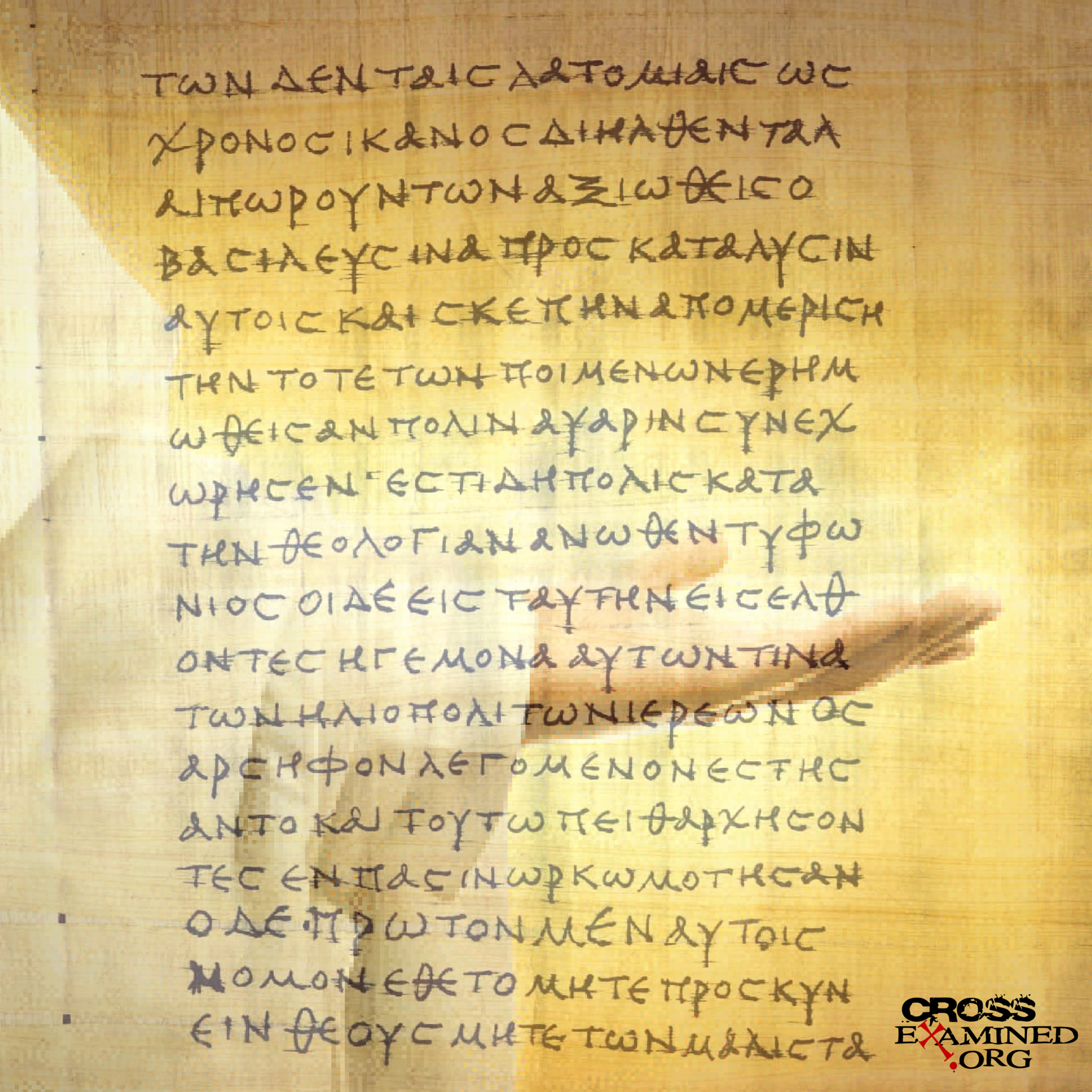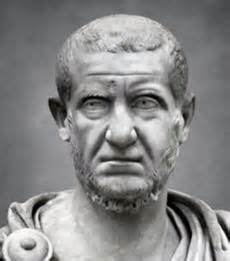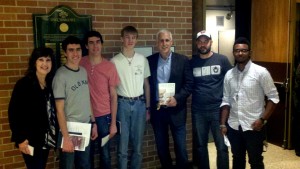In prior posts, I’ve talked about why parents have to care about apologetics (the reasoned defense of Christianity), and I’ve shared resources for getting started with apologetics. I realize, however, that it can seem pretty ambiguous to have a goal of “learning apologetics.” We need to know the specific questions we most need to study and discuss with our kids, the ones that non-believers most frequently challenge Christians on and the ones that most frequently turn young adults away from the faith after spending 18 years in the church.
That’s the purpose of this post.
I want to give you a very specific list of 65 apologetics questions every Christian parent needs to learn to answer and discuss with their kids (in age-appropriate ways). Of course, any such list is subjective. I created this list based on my own study and experience with engaging in these topics, with a special emphasis on the issues challenging young adults today.
You may not think I’ve narrowed it down much by giving you 65, but there are hundreds of questions that could have been listed! In case this looks overwhelming, I’ve highlighted in red my “top 20.” Start with those if you’re new to these topics.
I encourage you to take some time and challenge yourself here. Read each question and give yourself a “point” for each one you feel you could thoroughly answer. What would your score be if you had to answer these questions today?
Questions About the Existence and Nature of God
1. What key arguments are there for (and against) God’s existence?
2. What are the practical implications of an atheistic worldview?
3. Why would a good God allow evil to exist?
4. Why would a good God allow suffering to exist?
5. Why would God command the death of so many people in the Bible (e.g., the Canaanites)?
6. How can a loving God send people to hell?
7. Why does God remain so “hidden?”
8. Why does the “Old Testament God” seem different than the “New Testament God?”
9. Why would God need people to worship Him (isn’t that egotistical and arrogant)?
Questions About Truth and Worldviews
10. What is the difference between absolute and relative truth?
11. How can it be reasonable for Christians to claim knowledge of objective truth?
12. What are the role and danger of using “common sense” in evaluating truth claims?
13. Isn’t hell an unreasonable punishment for not believing in a specific set of truth claims?
14. How can Christians think their personal religious experiences with God are any more “true” than those of adherents to other belief systems?
15. Do all religions ultimately point to the same God? Why or why not?
16. What are key similarities and differences between the world’s major religions (e.g., Judaism, Christianity, Islam, Buddhism, Hinduism)?
17. Is Christianity a less intelligent worldview than atheism? Why or why not?
Questions About Jesus
18. What extra-biblical evidence is there that Jesus existed (as a historical person)?
19. What major Old Testament prophecies did Jesus fulfill?
20. Was Jesus wrong about the timing of his second coming? Why or why not?
21. What are the key passages in the Bible that show Jesus claimed to be God?
22. What does the Bible say about the exclusivity of Jesus with regard to salvation?
23. Why did Jesus have to die on the cross for our sins to be forgiven (couldn’t God have just pardoned sins without a gruesome death involved)?
24. What are the four minimal facts of the resurrection that are “so strongly attested historically that they are granted by nearly every scholar who studies the subject, even the rather skeptical ones?”
25. What are the main theories non-believers have about the resurrection (e.g., unknown tomb, wrong tomb, disciples stole the body, authorities hid the body, etc.)?
26. Why do Christians believe a supernatural (bodily) resurrection explains the minimal facts better than all the other theories?
27. Why does it matter whether or not Jesus was resurrected (and that the resurrection wasn’t simply a metaphor)?
Questions About the Bible
28. Who selected what books are in the Bible?
29. How were the books of the Bible selected?
30. Why were some “books” we know about today (e.g., the Gospel of Thomas) left out of the Bible?
31. How can we know that the Bible we have today is a reliable record of the original writings?
32. What major “contradictions” exist in the Bible (and what are the explanations)?
33. Does the Bible support slavery? Why or why not? (Don’t laugh at this and the next two questions…these come up constantly in discussion with atheists.)
34. Does the Bible support rape? Why or why not?
35. Does the Bible support human sacrifice? Why or why not?
36. What does the Bible say about homosexuality?
37. How do Christians determine what parts of the Bible are prescriptive and which are descriptive?
Science and Christianity
Young Earth Creationism
38. What is Young Earth Creationism (YEC)?
39. What are key pieces of scriptural support for the YEC interpretation of creation in six 24-hour days?
40. How do YECs determine that the earth is 6,000-10,000 years old?
Evidence for an Old Earth (i.e., billions of years old)
41. What areas of science have implications for the age of the earth?
42. What are major methods scientists use to estimate the age of the earth, and what is their consensus on the estimate?
43. What is the relationship between belief in a global flood and the age of the earth? Old Earth Creationism
44. What is “Old Earth Creationism (OEC)?”
45. What are the major reasons OECs reject the YEC interpretation of creation?
46. What are the key pieces of scriptural support for the OEC interpretation?
Intelligent Design
47. What is Intelligent Design?
48. Why do Intelligent Design proponents consider it a scientific theory and not a religious one?
49. What are the major reasons Intelligent Design proponents reject evolution as a sufficient explanation for the existence of life?
50. What does it mean that the universe appears to be “finely tuned?”
Evolution
51. What is evolution (from a purely scientific perspective)?
52. What are the key pieces of evidence for evolution?
53. What are the key questions evolution has not answered?
54. What do people mean when they talk about “macroevolution” versus “microevolution”?
55. Why do evolutionists reject the theory of intelligent design?
56. What are the theological implications for acceptance of evolution?
57. What are the theological implications specifically for Adam and Eve not being literal, historical people? Other Science and Christianity Questions
58. Why would Jesus-loving, Bible-believing Christians differ on their view of origins?
59. How can Christians believe miracles are possible, given what we know about science (e.g., the miracle of Jesus’ resurrection)?
Other Important (and Common) Questions
60. What does it mean (biblically) to have faith, and how is that different than the popular definition of faith?
61. If Christianity is true, why are there so many Christians whose lives look no different than those of non-believers (aren’t many Christians hypocrites)?
62. Why are there so many denominations (and does the fact of many denominations invalidate the truth of Christianity)?
63. Is Christianity “responsible” for millions of deaths throughout history? Why or why not, and what implications does the answer have for the evaluation of Christian truth claims?
64. What happens to people who have never heard the Gospel?
65. Why don’t miracles happen as frequently today as they did in the Bible?
You needed something to work on in 2016, right? I know I have my work cut out for me! I’ll be blogging about these topics over time, with my usual emphasis on delivering the message to our kids. Want to be sure to see each post? Sign up for my email list below!
Recommended resources related to the topic:
Talking with Your Kids about God: 30 Conversations Every Christian Parent Must Have by Natasha Crain (Book)
Keeping Your Kids on God’s Side: 40 Conversations to Help Them Build a Lasting Faith by Natasha Crain (Book)
Courageous Parenting by Jack and Deb Graham (Book)
Proverbs: Making Your Paths Straight Complete 9-part Series by Frank Turek DVD and Download
Forensic Faith for Kids by J. Warner Wallace and Susie Wallace (Book)
God’s Crime Scene for Kids by J. Warner Wallace and Susie Wallace (Book)
Natasha Crain is a blogger, author, and national speaker who is passionate about equipping Christian parents to raise their kids with an understanding of how to make a case for and defend their faith in an increasingly secular world. She is the author of two apologetics books for parents: Talking with Your Kids about God (2017) and Keeping Your Kids on God’s Side (2016). Natasha has an MBA in marketing and statistics from UCLA and a certificate in Christian apologetics from Biola University. A former marketing executive and adjunct professor, she lives in Southern California with her husband and three children.
Original Blog Source: http://bit.ly/37yH8z2















